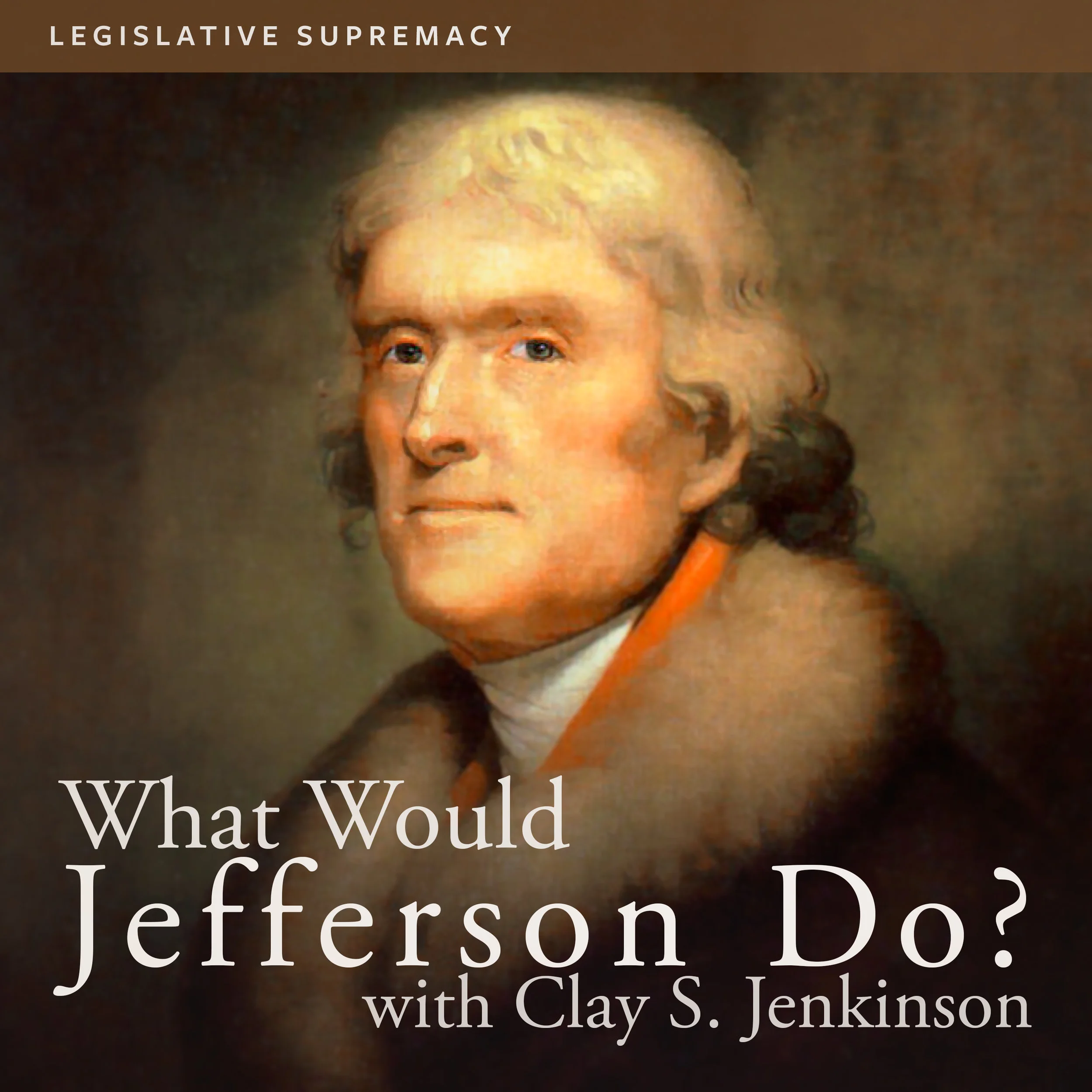When the Federalist Congress went too far in 1798 during the Quasi War with France, the country righted itself at the next election. The Federalists passed the Alien and Sedition Acts, and the discriminatory Naturalization Act. Jefferson, who was often a rash civil libertarian, over-reacted with his secretly-written Kentucky Resolutions, which represented a kind of sour grapes secessionist threat to the future of the constitutional settlement.
Still, the Federalists paid a huge, even fatal, price for their willingness to trample on the Bill of Rights during the undeclared naval war with France. The newly-hatched Republicans came to power in 1800, led by Jefferson and Madison, and the Federalists who had panicked in 1798 and violated the Bill of Rights were put on a course of political extinction. By 1808, when Madison was elected to succeed Jefferson, there was virtually no Federalist Party left.
When FDR tried to pack the Supreme court in 1937, a bipartisan coalition in Congress prevented him from shattering the unwritten norm of nine justices and an essentially nonpartisan Supreme Court. Because of the perfect storm of the Great Depression, the Dust Bowl, Hitler and Hirohito, Roosevelt won an unprecedented third and then a fourth term in 1936 and 1940. But just two years after FDR’s death, the American people adopted the 22nd Amendment insuring that no future president would violate the unwritten Constitutional norm of two terms only.
During war scares—the Quasi War of 1798 (Alien and Sedition Law), the Civil War (Lincoln’s suspension of habeas corpus), World War I (the Red Scare and the espionage act), World War II (Japanese internment), the Cold War (Joseph McCarthy, and the House Un-American Activities Committee)—civil liberties have been subordinated to what those in power regarded as national security and national survival. In every case, I believe, those who violated the Constitution were just wrong. I would have thought until a couple of weeks ago that no American of 2018 would retrospectively support the internment of Japanese Americans during World War II. At any rate, my point is that after each of these national security scares, two things happened. First, once we had calmed down, we gravitated back towards greater respect for the Bill of Rights, greater adherence to American constitutional norms; but, second, every time such violations of the Bill of Rights occur, it makes it a little easier to justify the next set of Red Scare policies. The power of the executive expands in crisis and that power never quite fully subsides.
We are not living in an especially dangerous time. The economy is booming. We are at last winding down our disastrous wars in central Asia and the Middle East. Islamic terrorism is still a very serious problem, but you have to admit that it has substantially subsided, and it has not become the existential threat we all feared it was going to be—not yet, at least. Crime is down.
So why is our president kicking down the guardrails of American small-c constitutional norms? Is it worth creating a national crisis over what are called the Culture Wars? Really? However imperfect a national candidate Hillary Clinton was, who really wants to lock her up in federal prison? Assuming we could afford a Great Wall of America on the Mexican border, would it really solve the problems we are assured it would solve? However imperfect the FBI and the Department of Justice at times are, and however dubious some of its actions, does anyone really believe that it is engaged in a deep state attempt to remove the current president by a kind of executive branch coup d’état? Partisan they may at times be, but does anyone really think the great newspapers of this country routinely distort the facts in an attempt to bring down the president? Are they making up Scott Pruett’s peculations? Are they making up President Trump’s clear attempts to obstruct the Muller investigation? Did they invent Stormy Daniels? Did they invent the Access Hollywood tape? Did they invent the president’s deliberate snubbings of our longstanding allies? Most of what we know about President Trump’s weaknesses as a man and president come from his own Twitter feed. How can that be fake news?
My point is that we need to return to what Senator John McCain calls “regular order.” We need to lower the temperature, on both sides, and get on with the public business of the most important nation on earth in a rational, sensible, and mutually respectful way. We are behaving in a time of peace and prosperity as if there were a series of existential threats to the future of America that can only be addressed in apocalyptic terms and by way of a deliberate violation of American decency, due process, and American values. Everyone needs to calm down, read more, watch Fox and MSNBC less, and we need all to agree that there is infinitely more right about America than wrong, and that in many respects we have never had it so good.
We are lurching toward an existential crisis by letting the loudest demagogues on both sides scream incessantly that we are in an existential crisis.
Chill, as my daughter says. Just chill.
























"I never considered a difference of opinion in politics, in religion, in philosophy, as cause for withdrawing from a friend."
— Thomas Jefferson, 1800
This week, we ask President Jefferson about his famous dinner parties and their extensive menus. It was important to Jefferson to not appear too regal, and the dinner parties were kept somewhat casual. In 1802, a Federalist senator from New Hampshire was meeting Jefferson at a dinner when “a tall high boned man” entered the room wearing “an old brown coat, red waistcoat, old corduroy small clothes, much soiled—woolen hose—& slippers without heels.” He added, “I thought this man was a servant; but was surprised by the announcement it was the President.”